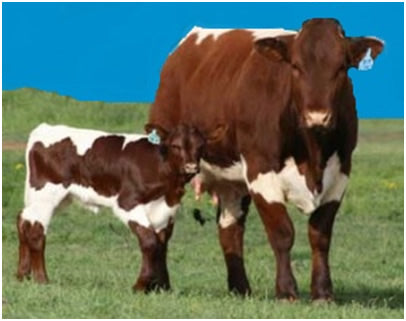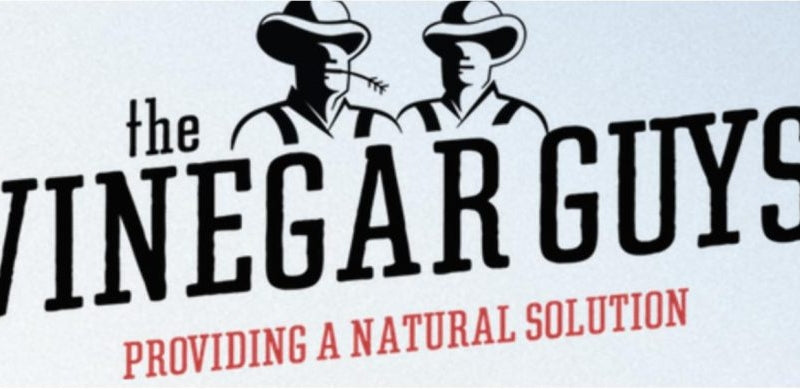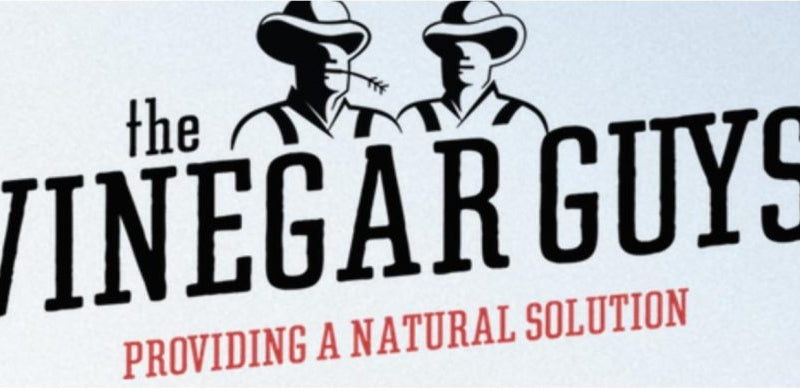- Home
- Livestock Feed
- Chicken Feed

Livestock Feed
{"id":6930307973308,"title":"ACV Vinegar 1 Gal","handle":"acv-vinegar-1-gal","description":"\u003cb data-mce-fragment=\"1\"\u003e\u003cspan size=\"4\" style=\"font-size: large;\" data-mce-fragment=\"1\"\u003eWater and Feed Supplement\u003c\/span\u003e\u003c\/b\u003e\n\u003cdiv data-mce-fragment=\"1\"\u003e(Source: \u003ca href=\"http:\/\/www.apple-cider-vinegar-benefits.com\/\" data-mce-fragment=\"1\" data-mce-href=\"http:\/\/www.apple-cider-vinegar-benefits.com\/\"\u003ewww.apple-cider-vinegar-benefits.com\u003c\/a\u003e)\u003cspan size=\"4\" style=\"font-size: large;\" data-mce-fragment=\"1\"\u003e\u003cspan data-mce-fragment=\"1\"\u003e\u003cb data-mce-fragment=\"1\"\u003e\u003cbr data-mce-fragment=\"1\"\u003e\u003c\/b\u003e\u003c\/span\u003e\u003c\/span\u003e\n\u003cdiv data-mce-fragment=\"1\"\u003e\u003cbr data-mce-fragment=\"1\"\u003e\u003c\/div\u003e\nDr Jarvis, the Vermont country doctor who popularized the use of \n\u003cdiv class=\"sites-embed-align-right-wrapping-on\" data-mce-fragment=\"1\"\u003e\n\u003cdiv class=\"sites-embed-border-on sites-embed\" data-mce-fragment=\"1\"\u003e\n\u003cdiv class=\"sites-embed-content sites-embed-type-text\" data-mce-fragment=\"1\"\u003e\n\u003cdiv class=\"sites-embed-content-textbox\" data-mce-fragment=\"1\"\u003e\n\u003cdiv dir=\"ltr\" data-mce-fragment=\"1\"\u003e\u003cspan size=\"2\" style=\"font-size: small;\" data-mce-fragment=\"1\"\u003eA tip commonly used - for horses that will not drink the water in a new location: add some apple cider vinegar to the unfamiliar water!\u003c\/span\u003e\u003c\/div\u003e\n\u003c\/div\u003e\n\u003c\/div\u003e\n\u003c\/div\u003e\n\u003c\/div\u003e\napple cider vinegar in his book\u003cspan data-mce-fragment=\"1\"\u003e \u003c\/span\u003e\u003ci data-mce-fragment=\"1\"\u003eFolk Medicine\u003c\/i\u003e, found that a horse would chew the wood of his stall because the wood contained potassium. Experimenting with calves, he found that they would not chew the wood of their pens if ACV was added to their drinking water, since apple cider vinegar is an excellent source of easily absorbable potassium and other trace minerals.\u003cbr data-mce-fragment=\"1\"\u003e\u003cbr data-mce-fragment=\"1\"\u003eBesides the nutritional benefits, vinegar helps to purify the drinking water by destroying harmful microorganisms that can thrive in neutral or mildly basic water (Two thousand years ago Roman soldiers were adding vinegar to their drinking water for the same reason).\n\u003cdiv data-mce-fragment=\"1\"\u003e\u003cbr data-mce-fragment=\"1\"\u003e\u003c\/div\u003e\n\u003cdiv data-mce-fragment=\"1\"\u003eRecommended dosage rates for horses vary from 1 cup (250 ml) of ACV for every 50 gallons (190 liters) of drinking water all the way up to 1 cup (250ml) for every 6 gallons (23 liters).\u003cbr data-mce-fragment=\"1\"\u003e\n\u003c\/div\u003e\n\u003cdiv data-mce-fragment=\"1\"\u003e\u003cbr data-mce-fragment=\"1\"\u003e\u003c\/div\u003e\n\u003cdiv data-mce-fragment=\"1\"\u003eFor a healthy horse, use 1\/4 cup (60 ml) of unpasteurized ACV on feed grain per day. Dilute the vinegar 50\/50 with water before adding to the feed.\u003cbr data-mce-fragment=\"1\"\u003e\u003cbr data-mce-fragment=\"1\"\u003eBecause of its potassium and associated trace mineral content, this feed supplement is invaluable for mares coming up to foaling and is also beneficial for older horses with digestive difficulties or arthritis.\u003c\/div\u003e\n\u003cdiv data-mce-fragment=\"1\"\u003e\n\u003cdiv data-mce-fragment=\"1\"\u003e\u003cbr data-mce-fragment=\"1\"\u003e\u003c\/div\u003e\n\u003cb data-mce-fragment=\"1\"\u003e\u003cspan size=\"4\" style=\"font-size: large;\" data-mce-fragment=\"1\"\u003eIntestinal Stones\u003c\/span\u003e\u003c\/b\u003e\u003cbr data-mce-fragment=\"1\"\u003e\u003cbr data-mce-fragment=\"1\"\u003eIntestinal stones called enteroliths, can develop in susceptible horses which can cause blockages that require expensive surgery.\u003c\/div\u003e\n\u003cdiv data-mce-fragment=\"1\"\u003e\n\u003cbr data-mce-fragment=\"1\"\u003eSince the ingestion of vinegar increases the intestinal acidity in horses, it helps prevent these stones from forming\u003cspan data-mce-fragment=\"1\"\u003e \u003c\/span\u003e\u003ca href=\"http:\/\/www.vetmed.ucdavis.edu\/vsr\/gastrolab\/TOPICS.html\" data-mce-fragment=\"1\" data-mce-href=\"http:\/\/www.vetmed.ucdavis.edu\/vsr\/gastrolab\/TOPICS.html\" target=\"_blank\"\u003eaccording to veterinary researchers at the University of California at Davis\u003c\/a\u003e. \u003c\/div\u003e\n\u003cdiv data-mce-fragment=\"1\"\u003e\u003cbr data-mce-fragment=\"1\"\u003e\u003c\/div\u003e\n\u003cdiv data-mce-fragment=\"1\"\u003eThe number of horses developing enteroliths has increased especially in certain geographical areas such as the southwestern part of the United States, particularly California. Certain breeds such as Arabians and Morgans seem to be more prone to enteroliths than others.\u003cbr data-mce-fragment=\"1\"\u003e\u003cbr data-mce-fragment=\"1\"\u003eFor more horse care information and recommended preventative measures related to the equine diet,\u003cspan data-mce-fragment=\"1\"\u003e \u003c\/span\u003e\u003ca href=\"http:\/\/www.apple-cider-vinegar-benefits.com\/enteroliths.html\" data-mce-fragment=\"1\" data-mce-href=\"http:\/\/www.apple-cider-vinegar-benefits.com\/enteroliths.html\" target=\"_blank\"\u003evisit www.apple-cider-vinegar-benefits.com\/enteroliths.html\u003c\/a\u003e.\u003c\/div\u003e\n\u003cdiv data-mce-fragment=\"1\"\u003e\u003cbr data-mce-fragment=\"1\"\u003e\u003c\/div\u003e\n\u003cdiv data-mce-fragment=\"1\"\u003e\n\u003cdiv data-mce-fragment=\"1\"\u003e\u003cb data-mce-fragment=\"1\"\u003e\u003cspan size=\"4\" style=\"font-size: large;\" data-mce-fragment=\"1\"\u003eMild Cure for Skin Conditions\u003c\/span\u003e\u003c\/b\u003e\u003c\/div\u003e\n\u003cdiv data-mce-fragment=\"1\"\u003e\u003cu data-mce-fragment=\"1\"\u003e\u003cbr data-mce-fragment=\"1\"\u003e\u003c\/u\u003e\u003c\/div\u003e\nFull strength apple cider vinegar can be rubbed directly into the horse's skin around a ringworm infection. Ringworm is an infection of the skin and hair by several types of fungi (not worms).\u003cbr data-mce-fragment=\"1\"\u003e\u003cbr data-mce-fragment=\"1\"\u003eRub in thoroughly two or three times a day for several consecutive days. This is especially useful for ringworm infections that are too close to the eyes to use a copper wash.\u003c\/div\u003e\n\u003cdiv data-mce-fragment=\"1\"\u003e\n\u003cdiv\u003e\n\u003cdiv\u003e\n\u003cspan size=\"4\" style=\"font-size: large;\"\u003e\u003cb\u003eNatural Insect Repellant\u003c\/b\u003e\u003c\/span\u003e\u003cbr\u003e\u003cbr\u003eAnother benefit of feeding your horse apple cider vinegar is to make the horse less attractive to flies and insects. Some specialists believe that horses sweat the vinegar out so that it becomes a natural repellant.\u003cbr\u003e\u003cbr\u003eInsect bites not only cause your horse itchy discomfort, they can be areas where skin bacterial and fungal infections can occur. \u003c\/div\u003e\n\u003cdiv\u003e\u003cbr\u003e\u003c\/div\u003e\n\u003cdiv\u003eIn addition, some types of hives are commonly caused by insect stings or bites. \u003cspan\u003eThey can cause other health risks by spreading such diseases as West Nile virus, encephalomyelitis viruses and equine infectious anemia.\u003c\/span\u003e\n\u003c\/div\u003e\n\u003cdiv\u003e\u003cspan\u003e\u003cbr\u003e\u003c\/span\u003e\u003c\/div\u003e\n\u003cdiv\u003e\n\u003cspan\u003eNever use a commercial fly repellant containing DEET on horses (or other animals) since it can be absorbed or ingested by them and cause unwanted toxic side effects.\u003c\/span\u003e\n\u003cdiv\u003e\n\u003cbr\u003eFor those who prefer not to use insecticides for horse care, especially on foals less than 12 weeks old, try feeding your horse ACV and make up your own vinegar-based natural horse fly spray that you can rub or spray onto the horse's coat as needed:\u003cbr\u003e\n\u003cul\u003e\n\u003cli\u003e\u003cspan\u003e2 cups (500 ml) Apple Cider Vinegar\u003c\/span\u003e\u003c\/li\u003e\n\u003cli\u003e\u003cspan\u003e1 cup (250 ml) Water\u003c\/span\u003e\u003c\/li\u003e\n\u003cli\u003e\u003cspan\u003e1 cup (250 ml) Avon Skin so Soft (bath oil)\u003c\/span\u003e\u003c\/li\u003e\n\u003cli\u003e\u003cspan\u003e2 tsp. ( 10 ml) Eucalyptus oil (or citronella oil)\u003c\/span\u003e\u003c\/li\u003e\n\u003c\/ul\u003e\n\u003cspan\u003eMix all ingredients well and store in a handy spray bottle.\u003c\/span\u003e\n\u003c\/div\u003e\n\u003cdiv\u003e\n\u003cbr\u003eWhile you're at it, take care of those pesky flies that hang around enclosed areas like barns or transportation trailers, by making a vinegar fly trap:\u003c\/div\u003e\n\u003cdiv\u003e\n\u003cul\u003e\n\u003cli\u003e\u003cspan\u003e3 cups (750 ml) Water\u003c\/span\u003e\u003c\/li\u003e\n\u003cli\u003e\u003cspan\u003e1\/4 cup (60 ml) Apple Cider Vinegar\u003c\/span\u003e\u003c\/li\u003e\n\u003cli\u003e\u003cspan\u003e1\/4 cup (60 grams) Sugar\u003c\/span\u003e\u003c\/li\u003e\n\u003c\/ul\u003e\nDissolve sugar in the vinegar solution and place in a large lidded jar with holes punched in the lid. Flies will get in but won't be able to fly out.\u003c\/div\u003e\n\u003c\/div\u003e\n\u003cdiv\u003e\u003cbr\u003e\u003c\/div\u003e\n\u003cdiv\u003e\n\u003cdiv\u003e\u003cb\u003e\u003cspan size=\"4\" style=\"font-size: large;\"\u003eHorse Hoof Care\u003c\/span\u003e\u003c\/b\u003e\u003c\/div\u003e\n\u003cdiv\u003e\u003cbr\u003e\u003c\/div\u003e\nThrush and other foot fungus infections can be greatly reduced by a regular spray or soak application of apple cider vinegar to the sole and frog of a horse's feet. By making the hoof area more acidic, fungus is no longer able to grow well there.\u003cbr\u003e\u003cbr\u003eA general horse hoof soaking solution can be prepared by adding 1\/4 cup (60 ml) of apple cider vinegar to one gallon (3.8 liters) of water.\u003cbr\u003e\u003cbr\u003eThe vinegar application will, at the same time, speed up the healing of any other foot infections or bruises your horse might have. An good article on apple cider vinegar for treatment of horse hoof abscesses is available at\u003cspan\u003e \u003c\/span\u003e\u003ca href=\"http:\/\/www.alphahorse.com\/hoof-abscess.html\" target=\"_blank\"\u003ewww.alphahorse.com\u003c\/a\u003e.\u003c\/div\u003e\n\u003cdiv\u003e\n\u003cbr\u003eFor more information on hoof care, the following book by Pete Ramey is highly recommended:\u003cspan\u003e \u003c\/span\u003e\u003ca href=\"http:\/\/www.hoofrehabstore.com\/care-and-rehab-of-the-equine-foot\/\" target=\"_blank\"\u003eCare and Rehabilitation of the Equine Hoof\u003c\/a\u003e\n\u003c\/div\u003e\n\u003c\/div\u003e\n\u003cdiv\u003e\u003cbr\u003e\u003c\/div\u003e\n\u003cdiv\u003e\u003cspan\u003e\u003cb\u003e\u003cspan size=\"4\" style=\"font-size: large;\"\u003eSuggested Dosage Rates\u003c\/span\u003e\u003c\/b\u003e\u003c\/span\u003e\u003c\/div\u003e\n\u003cdiv\u003e\u003cspan\u003e\u003cspan size=\"2\" style=\"font-size: small;\"\u003e(Source: \"Apple Cider Vinegar Stories\" - Will Winter, D.V.)\u003c\/span\u003e\u003c\/span\u003e\u003c\/div\u003e\n\u003cdiv\u003e\n\u003cul\u003e\n\u003cul\u003e\n\u003cli\u003eOffer in water, ideally 2-6 oz\/day (1\/4 - 3\/4 cup)\u003c\/li\u003e\n\u003cli\u003eSprinkle on hay or 50:50 (ACV\/water) free-choice \u003cspan\u003ein pan\u003c\/span\u003e\n\u003c\/li\u003e\n\u003cli\u003e\n\u003cspan\u003eUsed for colic, founder, or other therapy by drenching with 1 cup ACV diluted with 1 cup \u003c\/span\u003e\u003cspan\u003ewater, repeat\u003c\/span\u003e\n\u003c\/li\u003e\n\u003c\/ul\u003e\n\u003c\/ul\u003e\nPlease note – the above rates are only guides\u003c\/div\u003e\n\u003c\/div\u003e\n\u003c\/div\u003e","published_at":"2021-07-16T18:50:44-04:00","created_at":"2021-07-09T16:33:26-04:00","vendor":"Kraut Creek Naturals","type":"Additive for feeds and water","tags":["Brand_The Vinegar Guys","Catagory_Feeding Supplies","Category_Chicken Feed","Category_Poultry Feed","Purpose_All Flock","Purpose_Layer Feed"],"price":1899,"price_min":1899,"price_max":1899,"available":true,"price_varies":false,"compare_at_price":null,"compare_at_price_min":0,"compare_at_price_max":0,"compare_at_price_varies":false,"variants":[{"id":40270988345532,"title":"Default Title","option1":"Default Title","option2":null,"option3":null,"sku":"ACV","requires_shipping":true,"taxable":true,"featured_image":null,"available":true,"name":"ACV Vinegar 1 Gal","public_title":null,"options":["Default Title"],"price":1899,"weight":2268,"compare_at_price":null,"inventory_management":"shopify","barcode":"685757525879","requires_selling_plan":false,"selling_plan_allocations":[]}],"images":["\/\/omnifeedandsupply.com\/cdn\/shop\/products\/vinegar.jpg?v=1626475610"],"featured_image":"\/\/omnifeedandsupply.com\/cdn\/shop\/products\/vinegar.jpg?v=1626475610","options":["Title"],"media":[{"alt":null,"id":21990034538684,"position":1,"preview_image":{"aspect_ratio":2.057,"height":389,"width":800,"src":"\/\/omnifeedandsupply.com\/cdn\/shop\/products\/vinegar.jpg?v=1626475610"},"aspect_ratio":2.057,"height":389,"media_type":"image","src":"\/\/omnifeedandsupply.com\/cdn\/shop\/products\/vinegar.jpg?v=1626475610","width":800}],"requires_selling_plan":false,"selling_plan_groups":[],"content":"\u003cb data-mce-fragment=\"1\"\u003e\u003cspan size=\"4\" style=\"font-size: large;\" data-mce-fragment=\"1\"\u003eWater and Feed Supplement\u003c\/span\u003e\u003c\/b\u003e\n\u003cdiv data-mce-fragment=\"1\"\u003e(Source: \u003ca href=\"http:\/\/www.apple-cider-vinegar-benefits.com\/\" data-mce-fragment=\"1\" data-mce-href=\"http:\/\/www.apple-cider-vinegar-benefits.com\/\"\u003ewww.apple-cider-vinegar-benefits.com\u003c\/a\u003e)\u003cspan size=\"4\" style=\"font-size: large;\" data-mce-fragment=\"1\"\u003e\u003cspan data-mce-fragment=\"1\"\u003e\u003cb data-mce-fragment=\"1\"\u003e\u003cbr data-mce-fragment=\"1\"\u003e\u003c\/b\u003e\u003c\/span\u003e\u003c\/span\u003e\n\u003cdiv data-mce-fragment=\"1\"\u003e\u003cbr data-mce-fragment=\"1\"\u003e\u003c\/div\u003e\nDr Jarvis, the Vermont country doctor who popularized the use of \n\u003cdiv class=\"sites-embed-align-right-wrapping-on\" data-mce-fragment=\"1\"\u003e\n\u003cdiv class=\"sites-embed-border-on sites-embed\" data-mce-fragment=\"1\"\u003e\n\u003cdiv class=\"sites-embed-content sites-embed-type-text\" data-mce-fragment=\"1\"\u003e\n\u003cdiv class=\"sites-embed-content-textbox\" data-mce-fragment=\"1\"\u003e\n\u003cdiv dir=\"ltr\" data-mce-fragment=\"1\"\u003e\u003cspan size=\"2\" style=\"font-size: small;\" data-mce-fragment=\"1\"\u003eA tip commonly used - for horses that will not drink the water in a new location: add some apple cider vinegar to the unfamiliar water!\u003c\/span\u003e\u003c\/div\u003e\n\u003c\/div\u003e\n\u003c\/div\u003e\n\u003c\/div\u003e\n\u003c\/div\u003e\napple cider vinegar in his book\u003cspan data-mce-fragment=\"1\"\u003e \u003c\/span\u003e\u003ci data-mce-fragment=\"1\"\u003eFolk Medicine\u003c\/i\u003e, found that a horse would chew the wood of his stall because the wood contained potassium. Experimenting with calves, he found that they would not chew the wood of their pens if ACV was added to their drinking water, since apple cider vinegar is an excellent source of easily absorbable potassium and other trace minerals.\u003cbr data-mce-fragment=\"1\"\u003e\u003cbr data-mce-fragment=\"1\"\u003eBesides the nutritional benefits, vinegar helps to purify the drinking water by destroying harmful microorganisms that can thrive in neutral or mildly basic water (Two thousand years ago Roman soldiers were adding vinegar to their drinking water for the same reason).\n\u003cdiv data-mce-fragment=\"1\"\u003e\u003cbr data-mce-fragment=\"1\"\u003e\u003c\/div\u003e\n\u003cdiv data-mce-fragment=\"1\"\u003eRecommended dosage rates for horses vary from 1 cup (250 ml) of ACV for every 50 gallons (190 liters) of drinking water all the way up to 1 cup (250ml) for every 6 gallons (23 liters).\u003cbr data-mce-fragment=\"1\"\u003e\n\u003c\/div\u003e\n\u003cdiv data-mce-fragment=\"1\"\u003e\u003cbr data-mce-fragment=\"1\"\u003e\u003c\/div\u003e\n\u003cdiv data-mce-fragment=\"1\"\u003eFor a healthy horse, use 1\/4 cup (60 ml) of unpasteurized ACV on feed grain per day. Dilute the vinegar 50\/50 with water before adding to the feed.\u003cbr data-mce-fragment=\"1\"\u003e\u003cbr data-mce-fragment=\"1\"\u003eBecause of its potassium and associated trace mineral content, this feed supplement is invaluable for mares coming up to foaling and is also beneficial for older horses with digestive difficulties or arthritis.\u003c\/div\u003e\n\u003cdiv data-mce-fragment=\"1\"\u003e\n\u003cdiv data-mce-fragment=\"1\"\u003e\u003cbr data-mce-fragment=\"1\"\u003e\u003c\/div\u003e\n\u003cb data-mce-fragment=\"1\"\u003e\u003cspan size=\"4\" style=\"font-size: large;\" data-mce-fragment=\"1\"\u003eIntestinal Stones\u003c\/span\u003e\u003c\/b\u003e\u003cbr data-mce-fragment=\"1\"\u003e\u003cbr data-mce-fragment=\"1\"\u003eIntestinal stones called enteroliths, can develop in susceptible horses which can cause blockages that require expensive surgery.\u003c\/div\u003e\n\u003cdiv data-mce-fragment=\"1\"\u003e\n\u003cbr data-mce-fragment=\"1\"\u003eSince the ingestion of vinegar increases the intestinal acidity in horses, it helps prevent these stones from forming\u003cspan data-mce-fragment=\"1\"\u003e \u003c\/span\u003e\u003ca href=\"http:\/\/www.vetmed.ucdavis.edu\/vsr\/gastrolab\/TOPICS.html\" data-mce-fragment=\"1\" data-mce-href=\"http:\/\/www.vetmed.ucdavis.edu\/vsr\/gastrolab\/TOPICS.html\" target=\"_blank\"\u003eaccording to veterinary researchers at the University of California at Davis\u003c\/a\u003e. \u003c\/div\u003e\n\u003cdiv data-mce-fragment=\"1\"\u003e\u003cbr data-mce-fragment=\"1\"\u003e\u003c\/div\u003e\n\u003cdiv data-mce-fragment=\"1\"\u003eThe number of horses developing enteroliths has increased especially in certain geographical areas such as the southwestern part of the United States, particularly California. Certain breeds such as Arabians and Morgans seem to be more prone to enteroliths than others.\u003cbr data-mce-fragment=\"1\"\u003e\u003cbr data-mce-fragment=\"1\"\u003eFor more horse care information and recommended preventative measures related to the equine diet,\u003cspan data-mce-fragment=\"1\"\u003e \u003c\/span\u003e\u003ca href=\"http:\/\/www.apple-cider-vinegar-benefits.com\/enteroliths.html\" data-mce-fragment=\"1\" data-mce-href=\"http:\/\/www.apple-cider-vinegar-benefits.com\/enteroliths.html\" target=\"_blank\"\u003evisit www.apple-cider-vinegar-benefits.com\/enteroliths.html\u003c\/a\u003e.\u003c\/div\u003e\n\u003cdiv data-mce-fragment=\"1\"\u003e\u003cbr data-mce-fragment=\"1\"\u003e\u003c\/div\u003e\n\u003cdiv data-mce-fragment=\"1\"\u003e\n\u003cdiv data-mce-fragment=\"1\"\u003e\u003cb data-mce-fragment=\"1\"\u003e\u003cspan size=\"4\" style=\"font-size: large;\" data-mce-fragment=\"1\"\u003eMild Cure for Skin Conditions\u003c\/span\u003e\u003c\/b\u003e\u003c\/div\u003e\n\u003cdiv data-mce-fragment=\"1\"\u003e\u003cu data-mce-fragment=\"1\"\u003e\u003cbr data-mce-fragment=\"1\"\u003e\u003c\/u\u003e\u003c\/div\u003e\nFull strength apple cider vinegar can be rubbed directly into the horse's skin around a ringworm infection. Ringworm is an infection of the skin and hair by several types of fungi (not worms).\u003cbr data-mce-fragment=\"1\"\u003e\u003cbr data-mce-fragment=\"1\"\u003eRub in thoroughly two or three times a day for several consecutive days. This is especially useful for ringworm infections that are too close to the eyes to use a copper wash.\u003c\/div\u003e\n\u003cdiv data-mce-fragment=\"1\"\u003e\n\u003cdiv\u003e\n\u003cdiv\u003e\n\u003cspan size=\"4\" style=\"font-size: large;\"\u003e\u003cb\u003eNatural Insect Repellant\u003c\/b\u003e\u003c\/span\u003e\u003cbr\u003e\u003cbr\u003eAnother benefit of feeding your horse apple cider vinegar is to make the horse less attractive to flies and insects. Some specialists believe that horses sweat the vinegar out so that it becomes a natural repellant.\u003cbr\u003e\u003cbr\u003eInsect bites not only cause your horse itchy discomfort, they can be areas where skin bacterial and fungal infections can occur. \u003c\/div\u003e\n\u003cdiv\u003e\u003cbr\u003e\u003c\/div\u003e\n\u003cdiv\u003eIn addition, some types of hives are commonly caused by insect stings or bites. \u003cspan\u003eThey can cause other health risks by spreading such diseases as West Nile virus, encephalomyelitis viruses and equine infectious anemia.\u003c\/span\u003e\n\u003c\/div\u003e\n\u003cdiv\u003e\u003cspan\u003e\u003cbr\u003e\u003c\/span\u003e\u003c\/div\u003e\n\u003cdiv\u003e\n\u003cspan\u003eNever use a commercial fly repellant containing DEET on horses (or other animals) since it can be absorbed or ingested by them and cause unwanted toxic side effects.\u003c\/span\u003e\n\u003cdiv\u003e\n\u003cbr\u003eFor those who prefer not to use insecticides for horse care, especially on foals less than 12 weeks old, try feeding your horse ACV and make up your own vinegar-based natural horse fly spray that you can rub or spray onto the horse's coat as needed:\u003cbr\u003e\n\u003cul\u003e\n\u003cli\u003e\u003cspan\u003e2 cups (500 ml) Apple Cider Vinegar\u003c\/span\u003e\u003c\/li\u003e\n\u003cli\u003e\u003cspan\u003e1 cup (250 ml) Water\u003c\/span\u003e\u003c\/li\u003e\n\u003cli\u003e\u003cspan\u003e1 cup (250 ml) Avon Skin so Soft (bath oil)\u003c\/span\u003e\u003c\/li\u003e\n\u003cli\u003e\u003cspan\u003e2 tsp. ( 10 ml) Eucalyptus oil (or citronella oil)\u003c\/span\u003e\u003c\/li\u003e\n\u003c\/ul\u003e\n\u003cspan\u003eMix all ingredients well and store in a handy spray bottle.\u003c\/span\u003e\n\u003c\/div\u003e\n\u003cdiv\u003e\n\u003cbr\u003eWhile you're at it, take care of those pesky flies that hang around enclosed areas like barns or transportation trailers, by making a vinegar fly trap:\u003c\/div\u003e\n\u003cdiv\u003e\n\u003cul\u003e\n\u003cli\u003e\u003cspan\u003e3 cups (750 ml) Water\u003c\/span\u003e\u003c\/li\u003e\n\u003cli\u003e\u003cspan\u003e1\/4 cup (60 ml) Apple Cider Vinegar\u003c\/span\u003e\u003c\/li\u003e\n\u003cli\u003e\u003cspan\u003e1\/4 cup (60 grams) Sugar\u003c\/span\u003e\u003c\/li\u003e\n\u003c\/ul\u003e\nDissolve sugar in the vinegar solution and place in a large lidded jar with holes punched in the lid. Flies will get in but won't be able to fly out.\u003c\/div\u003e\n\u003c\/div\u003e\n\u003cdiv\u003e\u003cbr\u003e\u003c\/div\u003e\n\u003cdiv\u003e\n\u003cdiv\u003e\u003cb\u003e\u003cspan size=\"4\" style=\"font-size: large;\"\u003eHorse Hoof Care\u003c\/span\u003e\u003c\/b\u003e\u003c\/div\u003e\n\u003cdiv\u003e\u003cbr\u003e\u003c\/div\u003e\nThrush and other foot fungus infections can be greatly reduced by a regular spray or soak application of apple cider vinegar to the sole and frog of a horse's feet. By making the hoof area more acidic, fungus is no longer able to grow well there.\u003cbr\u003e\u003cbr\u003eA general horse hoof soaking solution can be prepared by adding 1\/4 cup (60 ml) of apple cider vinegar to one gallon (3.8 liters) of water.\u003cbr\u003e\u003cbr\u003eThe vinegar application will, at the same time, speed up the healing of any other foot infections or bruises your horse might have. An good article on apple cider vinegar for treatment of horse hoof abscesses is available at\u003cspan\u003e \u003c\/span\u003e\u003ca href=\"http:\/\/www.alphahorse.com\/hoof-abscess.html\" target=\"_blank\"\u003ewww.alphahorse.com\u003c\/a\u003e.\u003c\/div\u003e\n\u003cdiv\u003e\n\u003cbr\u003eFor more information on hoof care, the following book by Pete Ramey is highly recommended:\u003cspan\u003e \u003c\/span\u003e\u003ca href=\"http:\/\/www.hoofrehabstore.com\/care-and-rehab-of-the-equine-foot\/\" target=\"_blank\"\u003eCare and Rehabilitation of the Equine Hoof\u003c\/a\u003e\n\u003c\/div\u003e\n\u003c\/div\u003e\n\u003cdiv\u003e\u003cbr\u003e\u003c\/div\u003e\n\u003cdiv\u003e\u003cspan\u003e\u003cb\u003e\u003cspan size=\"4\" style=\"font-size: large;\"\u003eSuggested Dosage Rates\u003c\/span\u003e\u003c\/b\u003e\u003c\/span\u003e\u003c\/div\u003e\n\u003cdiv\u003e\u003cspan\u003e\u003cspan size=\"2\" style=\"font-size: small;\"\u003e(Source: \"Apple Cider Vinegar Stories\" - Will Winter, D.V.)\u003c\/span\u003e\u003c\/span\u003e\u003c\/div\u003e\n\u003cdiv\u003e\n\u003cul\u003e\n\u003cul\u003e\n\u003cli\u003eOffer in water, ideally 2-6 oz\/day (1\/4 - 3\/4 cup)\u003c\/li\u003e\n\u003cli\u003eSprinkle on hay or 50:50 (ACV\/water) free-choice \u003cspan\u003ein pan\u003c\/span\u003e\n\u003c\/li\u003e\n\u003cli\u003e\n\u003cspan\u003eUsed for colic, founder, or other therapy by drenching with 1 cup ACV diluted with 1 cup \u003c\/span\u003e\u003cspan\u003ewater, repeat\u003c\/span\u003e\n\u003c\/li\u003e\n\u003c\/ul\u003e\n\u003c\/ul\u003e\nPlease note – the above rates are only guides\u003c\/div\u003e\n\u003c\/div\u003e\n\u003c\/div\u003e"}

ACV Vinegar 1 Gal
$18.99
Water and Feed Supplement (Source: www.apple-cider-vinegar-benefits.com) Dr Jarvis, the Vermont country doctor who popularized the use of A tip commonly used - for horses that will not drink the water in a new location: add some apple cider vinegar to the unfamiliar water! apple cider vinegar in his book Folk Medicine, found that a hor...
Filter Products
Species
Category
- Cattle Feed
- Chicken Feed
- Goat Feed
- Pig Feed
- Poultry Feed
- Rabbit Feed
- Rabbit Supplements
- Rabbit Supplies
- Sheep Feed

